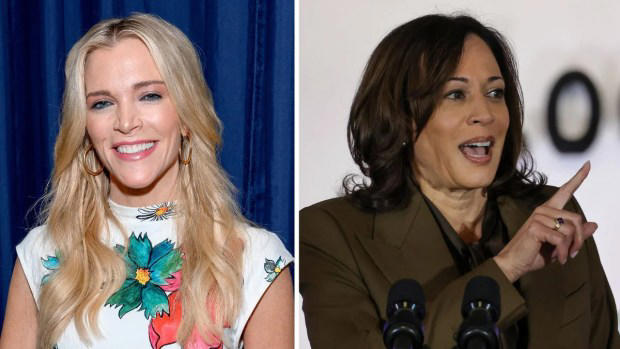Former President Donald Trump has fiercely criticized FBI Director Christopher Wray following remarks Wray made about a gunshot wound Trump sustained in a recent incident.
The controversy erupted after Wray, during a congressional hearing, referred to Trump’s injury as “shrapnel” when Trump had described it as a “bullet wound to the ear.”

The establishment media went wild after Wray told lawmakers, “With respect to former President Trump, there’s some question about whether or not it’s a bullet or shrapnel that hit his ear.” Newsweek was among those who took the statement and ran with it, writing in a tweet, “Donald Trump might not have been shot after all.”
Donald Trump might not have been shot after all https://t.co/60KvtkhY1N pic.twitter.com/fObe2Jr3iG
— Newsweek (@Newsweek) July 25, 2024
Trump Challenges Wray’s Characterization
Trump, known for his candid and often combative style, did not hold back in expressing his disdain for Wray’s comment. “This was not shrapnel,” Trump asserted, “It was a bullet wound to the ear, and anyone who says otherwise is either lying or incompetent.” Trump’s vehement objection highlights a broader tension between the former president and the current FBI leadership.
Trump set the record straight, yet again, via Truth Social posts Thursday night.
“FBI Director Christopher Wray told Congress yesterday that he wasn’t sure if I was hit by shrapnel, glass, or a bullet (the FBI never even checked!), but he was sure that Crooked Joe Biden was physically and cognitively ‘uneventful’ — Wrong!” he exclaimed.
“That’s why he knows nothing about the terrorists and other criminals pouring into our Country at record levels,” Trump continued, blasting Wray for focusing on “destroying J6 Patriots, Raiding Mar-a-Lago, and saving Radical Left Lunatics, like the ones now in D.C. burning American flags and spray painting over our great National Monuments — with zero retribution.”
“No, it was, unfortunately, a bullet that hit my ear, and hit it hard,” Trump said. “There was no glass, there was no shrapnel. The hospital called it a ‘bullet wound to the ear,’ and that is what it was. No wonder the once storied FBI has lost the confidence of America!”
The Incident and its Implications
The incident in question occurred earlier this month when Trump was reportedly caught in the crossfire of a skirmish. Medical reports confirmed that he sustained a superficial gunshot wound to his ear. Trump, emphasizing the gravity of the injury, suggested that Wray’s minimization of the wound was an attempt to undermine his credibility and downplay the seriousness of the attack.
Director Wray, testifying before the House Judiciary Committee, referred to the incident as a “shrapnel injury.” This characterization, Trump argues, is a deliberate misrepresentation. “Wray’s comments are not just a simple mistake; they are a calculated effort to mislead the public and diminish the severity of what happened to me,” Trump stated emphatically.
Political Ramifications
The exchange between Trump and Wray has significant political implications, especially as Trump remains a prominent figure in the Republican Party. Trump’s criticism of Wray is consistent with his long-standing discontent with the FBI, an institution he has frequently accused of bias and misconduct. This latest dispute adds another layer to the already complex relationship between Trump and federal law enforcement agencies.
Conservative commentators have rallied behind Trump, echoing his sentiments and questioning Wray’s leadership. They argue that Wray’s downplaying of the incident fits a pattern of behavior designed to protect establishment interests and undermine conservative figures.
Media Reactions
The media response to the controversy has been polarized. Outlets supportive of Trump have portrayed Wray’s remarks as part of a broader conspiracy to discredit the former president. “This is not an isolated incident,” one commentator noted. “It is part of a concerted effort by the deep state to silence and delegitimize President Trump.”
Conversely, media entities critical of Trump have suggested that the former president is overreacting and using the incident to fuel his narrative of victimization. These perspectives, however, have been met with skepticism by Trump’s supporters, who view them as yet another example of media bias.
The Broader Context
This incident underscores the ongoing and deep-seated conflict between Trump and the FBI. Since his presidency, Trump has been vocally critical of the bureau, particularly regarding its investigations into his campaign and administration. Wray, appointed by Trump in 2017, has found himself in a precarious position, navigating between maintaining the bureau’s independence and addressing the former president’s relentless critiques.
In this context, Trump’s latest attack on Wray is not just about a single comment; it reflects broader issues of trust and credibility between Trump and federal law enforcement. Trump’s supporters see his criticism as justified and necessary, arguing that the FBI has overstepped its bounds and acted against conservative interests. Critics, on the other hand, view Trump’s attacks as undermining the integrity of federal institutions.
Conclusion
The controversy over Wray’s “shrapnel” remark and Trump’s vehement response is more than a dispute over semantics. It is emblematic of the larger battle between Trump and the institutions he believes have wronged him. As Trump continues to wield significant influence within the Republican Party and American politics, his confrontations with figures like Wray will likely persist, shaping the discourse and impacting the political landscape.
Trump’s criticism of Wray has resonated with his base, reinforcing their perception of a biased federal bureaucracy. As the 2024 elections approach, such incidents will undoubtedly play a role in shaping voter attitudes and the narratives advanced by political leaders and media outlets.

